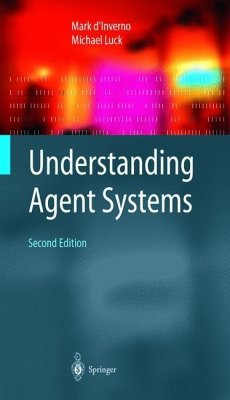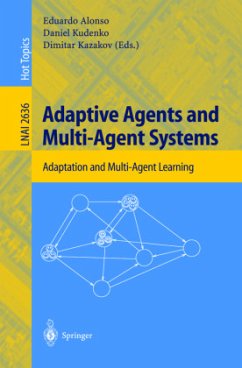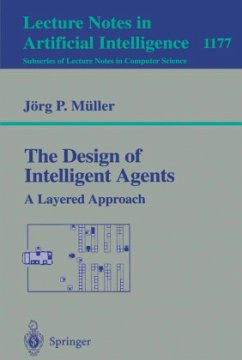
Understanding Agent Systems
Versandkostenfrei!
Versandfertig in 1-2 Wochen
77,99 €
inkl. MwSt.
Weitere Ausgaben:

PAYBACK Punkte
39 °P sammeln!
Since the first edition was published two years ago, much has been done on extend ing the work done on SMART to address new and important areas [3-5,54,79,80, 108-110,116,118-120,122]. In this second edition, we have revised, updated and corrected the existing text and added three new chapters. These chapters provide a broader coverage of the fie1d of agents, and show in more detail how the specific framework described can be used to examine other areas. In Chapter 6, we use the concepts of discovery to apply the framework to autonomous interaction in multi agent systems; in Chapter 10 we use ...
Since the first edition was published two years ago, much has been done on extend ing the work done on SMART to address new and important areas [3-5,54,79,80, 108-110,116,118-120,122]. In this second edition, we have revised, updated and corrected the existing text and added three new chapters. These chapters provide a broader coverage of the fie1d of agents, and show in more detail how the specific framework described can be used to examine other areas. In Chapter 6, we use the concepts of discovery to apply the framework to autonomous interaction in multi agent systems; in Chapter 10 we use it for considering normative agents and sys tems; and in Chapter 11 we describe work on an implementation and development environment. As a course text, the book can be considered in different parts, as follows. - Chapter I and Chapter 2 offer a basic introduction to agents and their core com ponents. - Chapter 3 and Chapter 4 cover relationships between agents and basic notions of cooperation for multi-agent systems. - Chapter 5 and Chapter 6 introduce sociological agents, which are needed for rea soning and planning, and their use in reasoning about communication and inter action. - Chapter 7, Chapter 8, Chapter 9 and Chapter 10 each cover different application areas relating to different aspects, inc1uding coordination (through the contract net), agent architecture (through AgentSpeak(L), social dependence networks, and normative systems.














